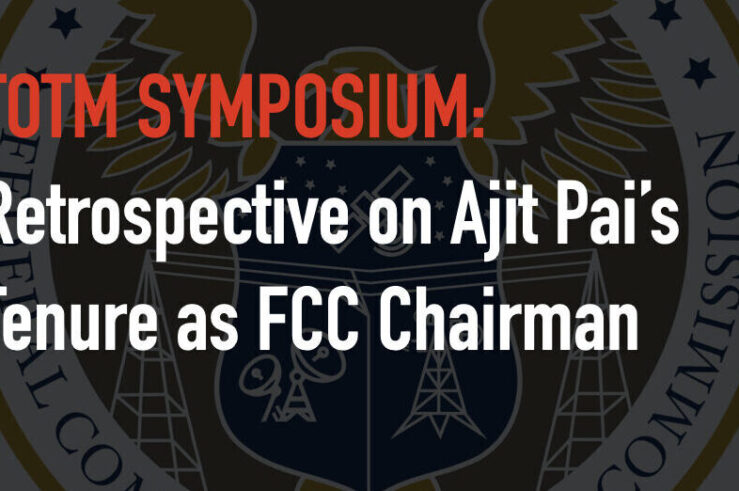Showing results for: “google”
Breaking Down House Democrats’ Forthcoming Competition Bills
Democratic leadership of the House Judiciary Committee have leaked the approach they plan to take to revise U.S. antitrust law and enforcement, with a particular focus on digital platforms. Broadly speaking, the bills would: raise fees for larger mergers and increase appropriations to the FTC and DOJ; require data portability and interoperability; declare that large ... Breaking Down House Democrats’ Forthcoming Competition Bills
Bad Blood at the FTC
John Carreyrou’s marvelous book Bad Blood chronicles the rise and fall of Theranos, the one-time Silicon Valley darling that was revealed to be a house of cards.[1] Theranos’s Svengali-like founder, Elizabeth Holmes, convinced scores of savvy business people (mainly older men) that her company was developing a machine that could detect all manner of maladies from ... Bad Blood at the FTC
The Globalization of Antitrust: A Cost-Benefit Appraisal
Overview Virtually all countries in the world have adopted competition laws over the last three decades. In a recent Mercatus Foundation Research Paper, I argue that the spread of these laws has benefits and risks. The abstract of my Paper states: The United States stood virtually alone when it enacted its first antitrust statute in ... The Globalization of Antitrust: A Cost-Benefit Appraisal
European Commission Objection to App Store Rules Lack Empirical Support
The European Commission recently issued a formal Statement of Objections (SO) in which it charges Apple with antitrust breach. In a nutshell, the commission argues that Apple prevents app developers—in this case, Spotify—from using alternative in-app purchase systems (IAPs) other than Apple’s own, or steering them towards other, cheaper payment methods on another site. This, ... European Commission Objection to App Store Rules Lack Empirical Support
The FTC Did Not ‘Fumble the Future’ in Its Google Search Investigation
Politico has released a cache of confidential Federal Trade Commission (FTC) documents in connection with a series of articles on the commission’s antitrust probe into Google Search a decade ago. The headline of the first piece in the series argues the FTC “fumbled the future” by failing to follow through on staff recommendations to pursue ... The FTC Did Not ‘Fumble the Future’ in Its Google Search Investigation
Committee Prepares to Grill Tech CEOS, but It Is the First Amendment That Could Get Torched
In what has become regularly scheduled programming on Capitol Hill, Facebook CEO Mark Zuckerberg, Twitter CEO Jack Dorsey, and Google CEO Sundar Pichai will be subject to yet another round of congressional grilling—this time, about the platforms’ content-moderation policies—during a March 25 joint hearing of two subcommittees of the House Energy and Commerce Committee. The ... Committee Prepares to Grill Tech CEOS, but It Is the First Amendment That Could Get Torched
Congress Should Not Legalize a News Media Cartel
Amazingly enough, at a time when legislative proposals for new antitrust restrictions are rapidly multiplying—see the Competition and Antitrust Law Enforcement Reform Act (CALERA), for example—Congress simultaneously is seriously considering granting antitrust immunity to a price-fixing cartel among members of the newsmedia. This would thereby authorize what the late Justice Antonin Scalia termed “the supreme ... Congress Should Not Legalize a News Media Cartel
Platform Self-Preferencing Can Be Good for Consumers and Even Competitors
Critics of big tech companies like Google and Amazon are increasingly focused on the supposed evils of “self-preferencing.” This refers to when digital platforms like Amazon Marketplace or Google Search, which connect competing services with potential customers or users, also offer (and sometimes prioritize) their own in-house products and services. The objection, raised by several ... Platform Self-Preferencing Can Be Good for Consumers and Even Competitors
Investors and Regulators Can Both Fall for Platform Bubbles
In current discussions of technology markets, few words are heard more often than “platform.” Initial public offering (IPO) prospectuses use “platform” to describe a service that is bound to dominate a digital market. Antitrust regulators use “platform” to describe a service that dominates a digital market or threatens to do so. In either case, “platform” denotes power ... Investors and Regulators Can Both Fall for Platform Bubbles
A Reflection on Commissioner Pai, Chairman Pai, and Public Service
Much of this symposium celebrates Ajit’s contributions as chairman of the Federal Communications Commission and his accomplishments and leadership in that role. And rightly so. But Commissioner Pai, not just Chairman Pai, should also be recognized. I first met Ajit when we were both minority commissioners at our respective agencies: the FCC and Federal Trade ... A Reflection on Commissioner Pai, Chairman Pai, and Public Service
Why Restoring Internet Freedom Was a Landmark Accomplishment
I am pleased to participate in this retrospective symposium regarding Ajit Pai’s tenure as Federal Communications Commission chairman. I have been closely involved in communications law and policy for nearly 45 years, and, as I’ve said several times since Chairman Pai announced his departure, he will leave as one of the most consequential leaders in ... Why Restoring Internet Freedom Was a Landmark Accomplishment
The DOJ’s Antitrust Case Against Google: A Tough Slog, but Maybe an Intriguing Possibility?
The U.S. Department of Justice’s (DOJ) antitrust case against Google, which was filed in October 2020, will be a tough slog.[1] It is an alleged monopolization (Sherman Act, Sec. 2) case; and monopolization cases are always a tough slog. In this brief essay I will lay out some of the issues in the case and raise ... The DOJ’s Antitrust Case Against Google: A Tough Slog, but Maybe an Intriguing Possibility?














